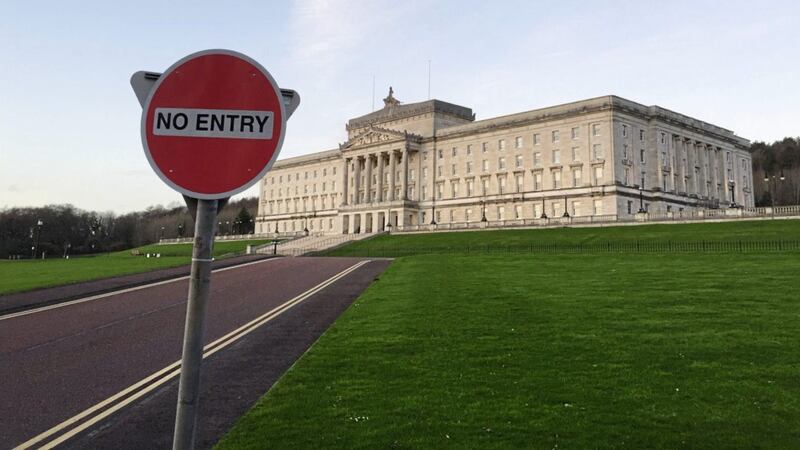Two years from today, June 7, 2021, will be the centenary of the first meeting of the Northern Ireland Parliament. That is an anniversary party-political unionism (DUP, UUP, TUV, PUP) will be keen to celebrate.
Northern Ireland was never meant to survive for one hundred years; 'Ulster' unionism was supposed to have disappeared into the ether; and the 'Irish question' was meant to have been resolved with a united Ireland, albeit one that had very good relations with Great Britain.
So there is an element of unionism which will want to celebrate around the theme of, 'We're still here and we're going to be here for a long, long time to come.' While a border poll is possible within the next five years there certainly won't be one between now and the end of 2021.
But what about the Assembly? The DUP would like a first minister in place to lead the celebrations. Ok, a first minister (with a Sinn Féin deputy) isn't the same as a prime minister; an Assembly isn't the same as a Parliament; and being a constitutional minority in that Assembly doesn't come close to the whopping majorities which Craig, Andrews, Brookeborough, O'Neill, Chichester-Clark and Faulkner had; but it's better than nothing.
The next Assembly election isn't due until May 2022, although one could be called if the latest round of talks - which will probably stretch until the autumn - doesn't end in a deal. There's a one seat difference between the DUP and SF at the moment (28 to 27) and the DUP would probably have been reasonably confident of keeping that lead until a couple of weeks ago. But the sudden success of Alliance has muddied the electoral waters, leaving a few DUP seats vulnerable to the vagaries of transfers in a handful of seats. The odds still favour the DUP, but not so much so (and we don't know when the RHI report comes into play and what havoc it could wreak) that it would welcome an election with open arms and brimming confidence.
And what about Sinn Féin? It had an awful and unexpected drubbing at the Euro and council elections in the south; and while it didn't receive as much damage on this side of the border, nor did it show much evidence of significant growth. It cut a deal to make sure that it wouldn't hold the office of Belfast's Lord Mayor in 2021, but what about being deputy first minister in 2021? Let me put that another way: does Sinn Féin really want the Assembly and a unionist first minister in place on June 7, 2021? Does it want any formal role in the 'celebrations'?
What about republican 'dissidents'? They don't listen to priests or ministers; they don't listen to politicians; they don't give a damn about the opinion of the overwhelming numbers of people here; they don't even care that the nature or scale of their terrorism can never produce the ends they want. They regard Sinn Féin as the real dissidents, traitors to the cause of Irish unity and the removal of the 'British presence.' They will be particularly determined to mark the run-up to 2021 and the year itself in bloodshed and death; and they'll also be keen to goad elements of loyalism to respond in kind. That's why they came to the heart of east Belfast last Saturday and placed a bomb under a police officer's car.
The biggest question, I suppose, is what unionism will be celebrating in 2021? I was born in Belfast in August 1955, a UK citizen by birth. And, all these years later, I remain a UK citizen by choice. I have no animus against those who want to see Ireland reunited peacefully and I will respect the will of the majority when the inevitable border poll comes. I've even changed my mind about leaving in the event of unity.
Yet in my lifetime no-one has ever made a case which persuaded me of the merits of Irish unity. Nor have I been bullied out of my beliefs by those who, in the name of unity, killed and injured friends and members of my family. No nation is perfect, they all have their skeletons and stains. But, generally speaking - and I'm only speaking about my own lifetime and circumstances - I believe that my citizenship of the UK has delivered far more positives and benefits than negatives and disadvantages. And during my lifetime much has been done to address what I have long acknowledged as the genuine grievances of the constitutional minority here; who should never have been treated or made to feel like second-class citizens.
I do have one regret, though. I really wish we had reached the point at which the celebration of Northern Ireland's centenary was something we could enjoy collectively.






